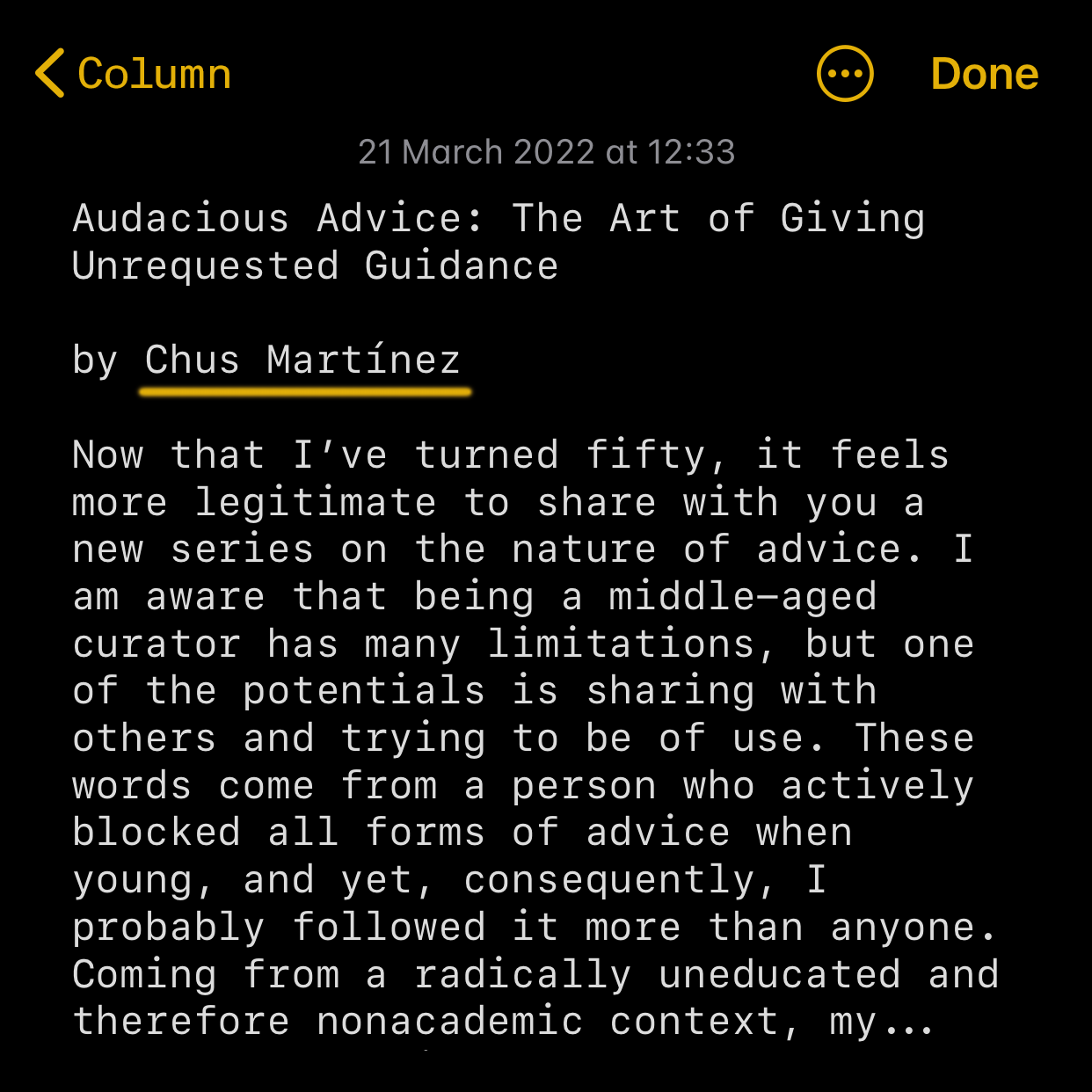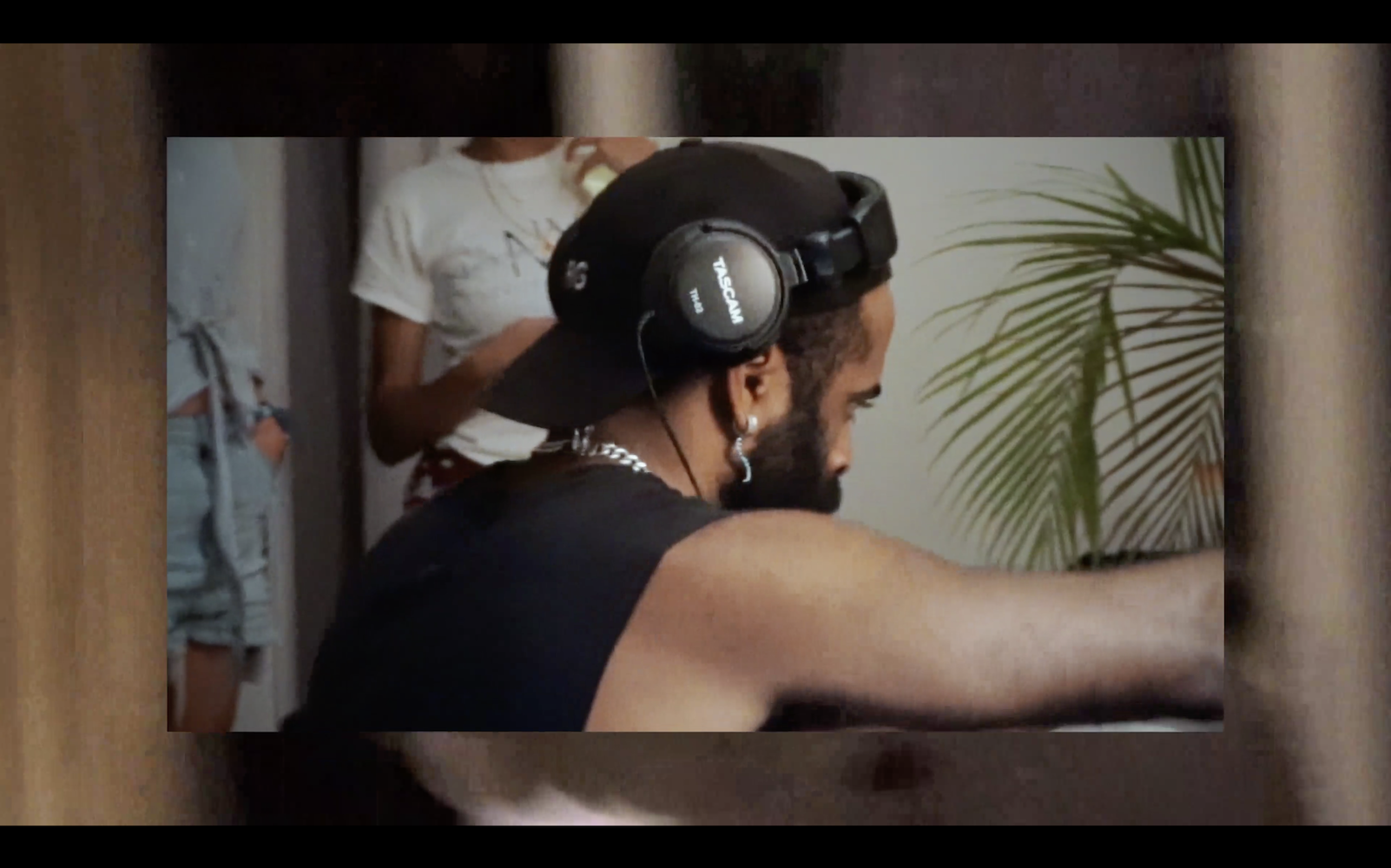A Monthly Column on The Art of Giving Unrequested Guidance.
I studied philosophy, and as a result there were many subjects that I was not supposed to name or touch upon. Money was very high on the list. To address a need for money or a lack thereof was considered highly unphilosophical. The philosophers I could find pictures of were mostly male, not very graceful, grumpy, deeply troubled, and — I assumed — poor. Endurance seemed to be a trait required to become relevant, legitimized by your peers, and eventually recognized. Austerity, both in matters of taste but also appearance, was fundamental to this group of (mostly) males who emanated a disdain toward material things that might interfere with thinking. My faith in my teachers and peers, my readings on Marxism, and my very modest origins helped to keep me on track. However, I discovered that, unlike me, all my teachers and fellow students were quite fluent regarding finance, and that the exercise of avoiding the topic was, for them, much more a question of style than a “true” philosophical basis for living.
Still, the problem remained: I was unable to talk about or understand money properly. Knowing that the combination of my gender and my choice of discipline could become a mayor setback in terms of how to fill a refrigerator or a stomach, I decided to ask my father what to do.
He was very happy to hear my concerns. Apparently my mother had heard from a friend of hers — a school teacher — that philosophy was good for nothing and that I might be in deep trouble. I felt deeply offended yet silently agreed with him without discussing my deep anxiety. After a “parent conference” — one of those long conversations my parents had in bed, which could be heard from my room without missing a word — it was decided I should join one or two trade union meetings of the harbor workers. My father was part of the union, and some sessions were entirely dedicated to salary comparison. It was strange to hear people putting very concrete numbers to labor hours. They were all men, and, in quoting the salaries of workers at different positions and capacities, they constantly added, “These numbers may never apply or be relevant to you.”
I assumed they meant this because I might never work in a particular capacity or area, but what they meant was that as a women, even if I worked on the harbor, I would never get the same salary as a man.
One of the parameters for getting better pay was risk. I loved how they defined it — not only referring to bodies at risk but also the anxieties that come with certain duties.
That encounter with the union completely changed my view of myself and others. I started doing things I never did before: to observe traits that might defeat my capacity for analysis, or try to put a “number” to what I saw. The world, my world, changed radically in twenty-four hours. I discovered that the philosophers’ cars were expensive, as were the wines they drank and the clothes they wore (all of which were merely “presents,” or of an origin that they “couldn’t remember”). Like a cheap cell phone ad, I began to see pop-up bubbles with dollar figures attached to everything. I discovered that money made the world go mute. This affected the way I went about every job. I was very afraid of a misstep — that I might address the question of payment in all its details — from the very outset. I knew that doing so would break the magic of being a virtuous woman, committed without needing to address her needs. But I was even more afraid of being exploited or taken for granted in my commitment, in my incredible willingness to work and to be generous while working.
I discovered that in institutions it was very difficult to find out how much one’s predecessor was paid. It was also interesting to observe that many young professionals were lying or very imprecisely saying sums that sounded better that they were. I realized that, as a woman, almost every time my predecessor was a man I was offered less. This information could only be found in computer or paper files after no one was willing to tell me. How to deal with this, how to figure out what was based on fear, how and who to ask, how to decide if differences were justified, how this disparity might affect my future at an organization, how to make a claim without anger or fear… All these questions made me sleepless many nights.
Therefore, my hope is that we all learn to address these conditions and share with younger professionals and others the importance of disclosing how these different systems work. This knowledge is also care. Though I am not very hopeful much can be done in the current moment, in which we — art practitioners — are losing ground. Fees, wages, and unpaid labor have been addressed millions times. They need to be addressed many more times and in many more ways in order to evaluate whether a job is worth it — the kind of power and importance we superimpose upon certain jobs that may not be worth doing while other jobs are great even if we think otherwise. Diversity also affects our hierarchical minds, always too keen on paying servitude to certain jobs in certain architectural boxes situated in certain cities without properly reflecting on what we actually cherish.



